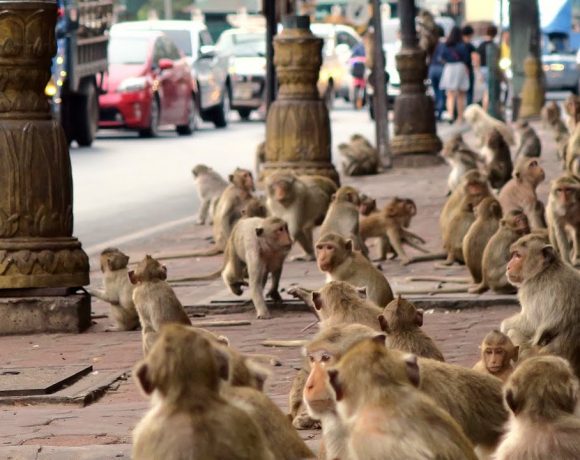Releasing Value From Soiled and Mutilated Currency Notes.
 Even though I had purchased an apartment and moved into it almost two years back , till recently I had never given any serious thoughts of joining the local parish. But as my kids had to attend the Sunday classes regularly, I thought it would be better to join the near by parish. For this I approached the parish priest and he was more than happy to welcome me and my family as the new members of his parish. During our conversations he enquired about my employment. When I told him that I am a banker, I could see his face suddenly lighting up with joy. I was a little distracted during my subsequent conversations thinking why the priests face lit up when I told him I was a banker. Would he be requiring a loan for construction of church ? Or would he be recommending some members of his parish for financial assistance to me? Being a banker such thoughts came very rapidly to my mind. I got the answer to my doubts, before i left the church . The answer came in the form of a small sealed cover which was handed over to me by the parish priest. As I looked at him with shock he said to me , with a gentle smile on his face “ These are some of the notes received by us as offerings , during the holy mass. We tried to remit it in our bank account, but they did not accept it as many notes were soiled and torn. These notes have been lying with me for years and I was wondering how to dispose these off . Now with a senior banker as our parishner , my worry of exchanging soiled notes is over”.
Even though I had purchased an apartment and moved into it almost two years back , till recently I had never given any serious thoughts of joining the local parish. But as my kids had to attend the Sunday classes regularly, I thought it would be better to join the near by parish. For this I approached the parish priest and he was more than happy to welcome me and my family as the new members of his parish. During our conversations he enquired about my employment. When I told him that I am a banker, I could see his face suddenly lighting up with joy. I was a little distracted during my subsequent conversations thinking why the priests face lit up when I told him I was a banker. Would he be requiring a loan for construction of church ? Or would he be recommending some members of his parish for financial assistance to me? Being a banker such thoughts came very rapidly to my mind. I got the answer to my doubts, before i left the church . The answer came in the form of a small sealed cover which was handed over to me by the parish priest. As I looked at him with shock he said to me , with a gentle smile on his face “ These are some of the notes received by us as offerings , during the holy mass. We tried to remit it in our bank account, but they did not accept it as many notes were soiled and torn. These notes have been lying with me for years and I was wondering how to dispose these off . Now with a senior banker as our parishner , my worry of exchanging soiled notes is over”.
I was in a catch 22 situation and I am sure many of my fellow bankers would have come across similar unenviable situations. You would have definitely received soiled currency notes from friends or relatives for being exchanged with issuable currency notes, where you cannot say not to them, and if you accept notes , in some cases you lose money. As per the data published by Reserve Bank of India during 2010-11, 13.9 billion pieces of soiled banknotes ( a whopping 21.4 per cent of banknotes in circulation) were processed and removed from circulation. The number of banknotes withdrawn from circulation has been increasing over the years, thanks to the clean note policy initiatives undertaken by RBI.
Reserve Bank of India ( RBI ) has specifically instructed that all the branches of banks in the country should provide good quality notes and coins of all denominations on demand and accept coins and notes either for transactions or exchange. In order to make the Note Refund Rules easy to understand and to apply, RBI Note Refund Rules 2009 has been issued. Accordingly , while the facility for exchange of soiled notes is to be provided by all banks at all of their branches, the facility of exchange of mutilated notes would be available at designated branches of banks to all tenderers , whether they are account holders or not. Currently all currency chest branches of banks are considered as designated branches. To make the adjudication process more simple authority has been given to officers at the designated branch to adjudicate mutilated notes presented at the branch.
Soiled and Mutilated notes
As per Reserve Bank of India (Note Refund) Rules 2009 a soiled note means ” a note which, has become dirty due to usage and also includes a two piece note pasted together wherein both the pieces presented belong to the same note, and form the entire note. A mutilated note” means a “note of which a portion is missing or which is composed of more than two pieces” . The soiled notes should be accepted over bank counters in payment of Government dues and for credit to accounts of the public maintained with banks. However Banks should not reissue these notes to the public and should deposit such notes in currency chests for onward transmission to RBI offices as soiled note remittances for further processing. For ensuring this banks have been directed that notes in the denomination of Rs 100 and above are to be processed through machines conforming to “Note Authentication and Fitness Sorting Parameters” prescribed by Reserve Bank from time to time, before issuing them over the counters or through ATMs. To start with bank branches having average daily cash receipts of Rs 50 lakh and above have been asked to install such machines.
Mutilated notes shall be presented to any of the designated bank branches of banks for adjudication. In case of adjudication claims in respect of notes of one rupee, two rupee, five rupee, ten rupee and twenty rupees denomination if the area of the single largest undivided piece of the note presented is more than 50 percent of the area of the respective denomination, rounded off to the next complete square centimetre, full value on mutilated notes of the above denominations shall be paid. If the area of the largest undivided piece of the note presented is less than or equal to 50 percent of the area of the note, the claim shall be rejected.
In case of adjudication claims for currency notes of Rs 50 and above , full value of the mutilated notes shall be paid if the area of the single largest undivided piece of the note presented is more than 65 percent of the area of the respective denomination rounded off to the next complete square centimeter. If the undivided area of the single largest undivided piece of the note presented is equal to or more than 40 percent and less than or equal to 65 percent of the area of the respective denomination rounded off to the next complete square centimeter, half the value of the note is payable. If the area of the single largest undivided piece of the note is less than 40 percent, no value shall be payable, and the claim shall be rejected. However if the claim of mutilated notes of rupees fifty to rupees one thousand denomination notes consists of a note composed of two pieces of the same note and the two pieces, individually, have an area equal to or more than 40 percent of the total area of the note in that denomination, then the claim may be refunded for full value.
Notes which have turned extremely brittle or badly burnt, charred or inseparably stuck up together and, therefore, cannot withstand normal handling, will not be accepted by the bank branches for exchange. Public having such notes should tender these notes to the concerned Issue Office of RBI where they will be adjudicated under a special procedure.
An “imperfect note” means any note, which is wholly or partially, obliterated, shrunk, washed, altered or indecipherable but does not include a mutilated note. The value of an imperfect note may be paid for full value/half value as applicable to mutilated notes.
Claims which will be rejected
Any claim in respect of a note, which cannot be identified with certainty as a genuine bank note or has been has been deliberately cut, torn, defaced or altered, enabling the use of the same for making of a false claim will be rejected. Any note with slogans and message of a political nature written across it ceases to be a legal tender and the claim on such a note will also be rejected. Similarly if the information called for by the Prescribed Officer or the Bank, has not been furnished by a claimant within a period of three months from the date of receipt of the notice or letter asking for the information, the claim shall be rejected.
Initiatives for popularizing the scheme.
With the intention of popularizing the scheme all designated bank branches have been instructed to prominently display at their branch premises, a board indicating the availability of note exchange facility with the wordings , “mutilated notes are accepted and exchanged here” . Banks have been asked to ensure that t all their designated branches provide facility for exchange of notes and coins not only to their customers but to the general public as well. Further the designated branches shall , provide exchange facility of soiled and mutilated notes on one of the Sundays in a month. Banks have thus been doing their part for unlocking the value of your soiled and mutilated notes. Now it is upto the public to utilize these facilities for their own benefit.
Jiz P. Kottukappally. The author is working as Asst General Manager, Catholic Syrian Bank and the views expressed are the personal opinion of the author. Author can be reached at jizpauls@gmail.com









